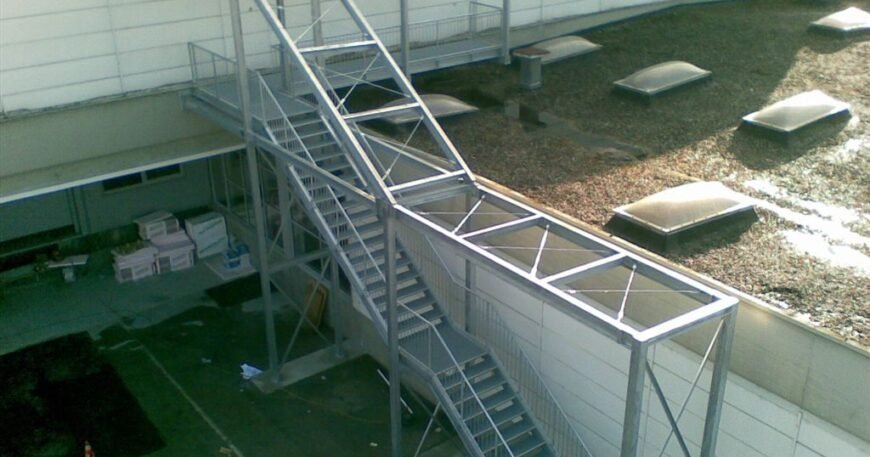Questions you don’t dare to ask — but that are quietly on your mind
— honest answers from a staircase manufacturer for those feeling a bit lost
“I don’t know what I need, but I feel it’s time to take a step.”
Did you know that most people interested in industrial and maintenance staircases don’t hold back because they don’t want one — but because they’re afraid of making the wrong decision? Yes, that uncertainty weighs on many clients like an oversized toolbox on their shoulders. Are you one of them? Maybe you feel there are too many details, too many unknowns, and you don’t want to jump into something that could break the project later.
We, as manufacturers, see this every day. And we’re not surprised.
“What if I choose the wrong type?”
This is the first major blind spot. An industrial staircase isn’t an IKEA shelf — you don’t just put it together out of a box and return it if it doesn’t fit. Here, dimensions, load capacities, attachment points, standards, and safety regulations all come into play. And you might be thinking: “I’m not a structural engineer, how would I know the right solution?”
Exactly. You’re not expected to be.
That’s why our process doesn’t start with an order form. It starts with questions. Where will the staircase go? How much space is there? Who will use it? How often? Will tools be carried on it? We bring the experience — you just bring your reality.
“I feel like manufacturers don’t understand me — they just ask for data, but no one asks about me…”
This is the second major pain point: depersonalized service. And this is where we do things differently. We’re not only interested in the structure — we want to see the person behind it. The site, the surroundings, the workers involved. Did you know that in many cases, the real issue isn’t the staircase itself, but what’s being used instead? A wobbly ladder, a platform everyone tries to avoid. It’s not just uncomfortable — it’s dangerous.
We approach this from the human side — not just the technical drawing side.
“But this all seems so complicated and too technical…”
Yes, it certainly does from the outside. If you don’t work with this daily, it’s easy to get lost in the terminology: straight staircases, fixed maintenance bridges, galvanized steel, anti-slip steps, DIN standards… That’s exactly why we don’t expect you to know all this. That’s our job. Yours is to tell us what you need as a person.
“And I can’t find prices anywhere…”
Yes. That’s one of the most common objections — and it’s valid. You don’t want to wait days for a quote. You just want to know: what will it cost? But industrial staircases can’t be priced like a mug. The site, method of attachment, material thickness, safety regulations — all affect the cost.
What we do: we’ll get back to you within 24 hours if you give us a few key details. And we’ll help clarify the rest.
“What if I make a mistake and overlook something important?”
This is the question many people keep to themselves. And that’s okay. But believe us: this isn’t a one-way process. It’s our job to notice those pitfalls for you — the ones others have already fallen into. We’ve been doing this a long time.
Let me give you an example.
Late last year, a workshop manager in Budapest contacted us. He had been putting off ordering a new staircase for three months because he couldn’t decide where to fix it. Turns out, the biggest issue wasn’t the staircase — it was that the wall he planned to attach it to couldn’t support it. We proposed another solution: a free-standing support structure. The staircase was in place within a week. Today, it’s used daily, and the workers are thankful — they finally have a safe way to move around.
These are not just metal staircases. They are decisions that impact everyday life.
And you know what the biggest mistake would be right now? Trying to figure everything out alone. You don’t need to know it all. You just need to know who to ask.
If you feel stuck or simply want clarity, let’s talk. We don’t just build staircases — we build relationships that support you.
And the questions? They’re not annoying. They’re proof that you care about what you’re doing. And that’s always a great starting point.


